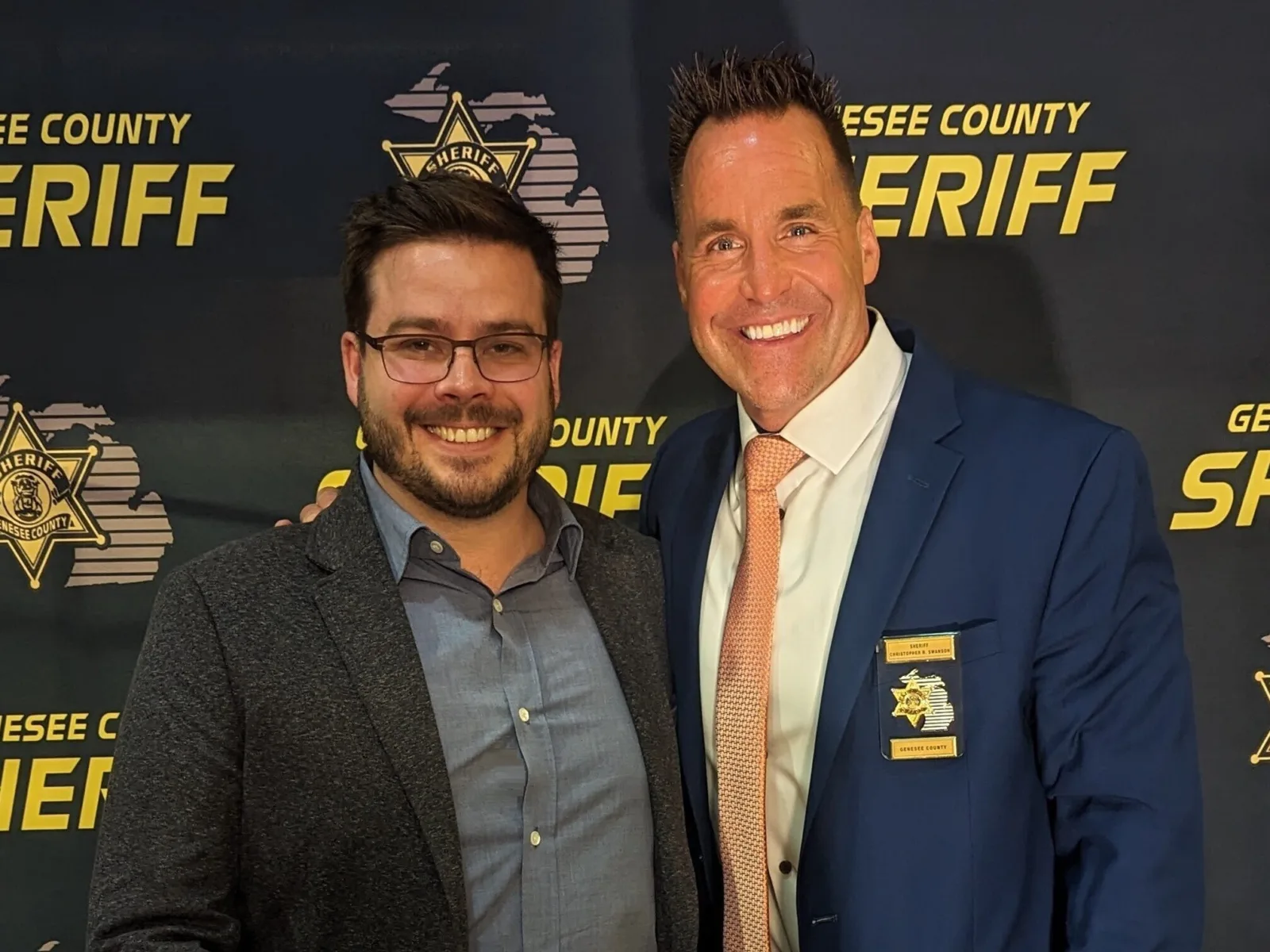A narrowed field of 10 candidates took the debate stage Thursday night at Texas Southern University in Houston. Next time they meet, we’d like to see more attention paid to high prices in health care, research on gun violence, and evidence-based plans to save lives amid an ongoing opioid crisis, as well as nuance in student debt discussions and ideas on how to address alternative approaches to violent crime.
Health Care

Give More Attention to High Prices, says Mark Miller, Executive Vice President of Health Care
Last night, candidates in the Democratic presidential primary once again gathered together for a debate, and once again the idea of a Medicare for All system was a centerpiece of the conversation. Candidates outlined their various approaches to the problem, with a few calling for a single national, government-run health insurance program that would replace private insurance, and others speaking in favor of some type of expanded public coverage in addition to existing private or public sources of coverage.
Unfortunately, what did not receive as much attention is the impact that high and escalating hospital prices and the prices for some physician specialties are having within the private market. These prices result from years of market consolidation on the part of hospitals and more recently from consolidation in certain physician specialties — often driven by private equity ownership. Arnold Ventures has stressed before the importance of putting downward pressure on the high prices hospitals and physicians charge in the commercial sector, but that topic has yet to take center stage in the health care debate.
Resolving the main problem — high prices — doesn’t have to involve ending private insurance. A good starting point for this discussion is using some multiple of Medicare prices or the commercial rates from competitive markets to limit what can be paid in commercial markets that lack competition. This step would help to create price discipline in the private sector, particularly in markets that are dominated by one or a few large health systems.
Criminal Justice

Debate Illustrates Huge Shift in Criminal Justice Reform Thinking, says Sebastian Johnson, Criminal Justice Manager
This debate was more evidence of the huge shift in our public conversation around criminal justice reform, particularly corrections reform. Exemplifying this shift was how the candidates with more moderate records (Sens. Kamala Harris and Amy Klobuchar and former Vice President Joe Biden) were on the defensive, while those who have introduced more ambitious and comprehensive criminal justice reform plans did not receive pushback from the more moderate candidates. (Compare, for example, the different dynamics in the criminal justice discussion to the health care back-and-forth.)
Even Biden, who championed the 1994 federal crime bill many say contributed to mass incarceration, made a full-throated defense of robust reentry supports that would have been tagged as “soft on crime” just a few years ago.
Klobuchar and Harris both offered defenses of their time as prosecutors, but from different angles. Harris highlighted the progressive reforms she made, while Klobuchar cast herself as a defender of black communities affected by violence. While it remains to be seen which articulation of the role of prosecutors resonates more with voters, it is remarkable that having once been a prosecutor is seen as a liability instead of an asset. This points to the significant influence the so-called “reform-minded prosecutor” movement has had on our dialogue about the criminal justice system.
Most of the candidates’ talking points focused on people sentenced for non-violent crimes. With more than half of all U.S. prisoners sentenced for violent crimes, this remains a critical blind spot in our national conversation that speaks to an ongoing discomfort with discussing alternative approaches to violent crime.
The problem is that meaningfully reducing prison populations is not possible without rethinking sentencing for violent crimes and our classification of “violent crime,” or creating alternatives to incarceration. I would have liked to hear candidates discuss restorative justice and community-based approaches to violence that focus on accountability instead of punitive incarceration. Their reluctance (and our reluctance) to suggest reforms for those convicted of violent crimes suggests there is more public education and opinion shaping to be done.

For Solutions to Gun Violence, We Have to Start With Research, says Asheley Van Ness, Director of Criminal Justice
It’s no surprise to see the issue of gun violence take center stage in last night’s debate. Not only are we as a country witnessing a historically unprecedented spike in gun violence — 39,773 people were killed by guns in 2017, the highest gun violence death toll in the past 50 years — but the candidates were speaking from Texas, which has witnessed multiple mass shootings in the last year. Two in the last month alone.
Gun violence is a public health crisis, and you could feel the same urgency to find solutions the public is feeling on stage. Biden spoke about a recent “sea change” in public opinion around finding solutions to gun violence, but the truth is that Americans have been more united than divided on this issue for many years. Poll after poll — such as Pew Research Center’s latest — shows that the majority of Americans want solutions that can help prevent gun violence, and they want them to be evidence-based and effective.
Because if our interventions aren’t effective — if the policies we put into place don’t make a difference in terms of lives saved — then they don’t matter. And to know whether interventions are effective at reducing violence — not just mass shooting violence but suicides by guns, domestic violence with guns, urban gun violence — we have to start with research.
The candidates mentioned a range of potential interventions last night that might be effective. But the truth is, we don’t know with certainty that they will have a strong impact because for decades, gun-related research has been underfunded by the federal government to the tune of $1.3 billion of what would have been expected, according to JAMA.
This is why it’s so critical to revitalize federal funding for gun violence research, and why our law enforcement leaders, businesses, and veterans have been so vocal on the need for Congress to authorize research funding. Fortunately, we’re in a promising moment. One thing not mentioned on stage is that there’s a lot of hope right now that leaders on the right and left will push forward funding for the critical scientific work we need to develop evidence-based solutions to one of the biggest public health crises of our time.
Higher Education
We Need to Talk About Those with Debt but No Degree, says Kelly McManus, Director of Higher Education
I’d like to see more nuance in discussions over student debt. When we think of “student debt,” the person who comes to mind is someone who owes more than $100,000. And yes, that number is staggering, and yes, we need to have a real conversation about college affordability. But we also need to look beneath the numbers a bit to see who is being harmed the most. It is actually people with relatively low balances — often less than $5,000 — who are most likely to default on their loans. There are also very real disparities by race: Black students are far more likely to be harmed by student loan debt than their white peers.
The reason people with low loan balances are more likely to default is that many of those students attended some school — and accumulated some debt — but wound up not graduating. These students have the burden of debt without the benefit of a degree. Students who attend predatory and low-quality institutions, many of which are for-profits, also fare poorly in the long run. These schools are typically more expensive, meaning students will take on more debt, and even if a student does get a degree, it is often not worth the paper it is printed on in the job market.
So does that mean free college is the answer? Again, it is a question that deserves more nuance because we know that access and affordability are critical, but success is just as important. We also need to be talking about broadscale reforms that improve quality and promote completion.
The Opioid Crisis

Let’s Hear Candidates’ Plans for Saving Lives, says Sarah Twardock, Public Health Manager
Lawsuit settlements don’t mean an end to an issue that is a leading cause of death for adults younger than 55. After three debates, we have yet to hear a question about how to address opioid overdose deaths despite the fact that candidates — including Pete Buttigieg and Biden — are coming from states that have been hit hard by this devastating health crisis.
Buttigieg and Sens. Elizabeth Warren and Klobuchar have proposed $100 billion plans to combat addiction and address mental health issues. But we need to make sure money isn’t dumped into a system that doesn’t function. I want to hear more about what types of structural reforms — from regulatory standards for treatment to changing laws that restrict access to medication to treat opioid use disorder — the candidates would support and how they’re planning to save lives.















